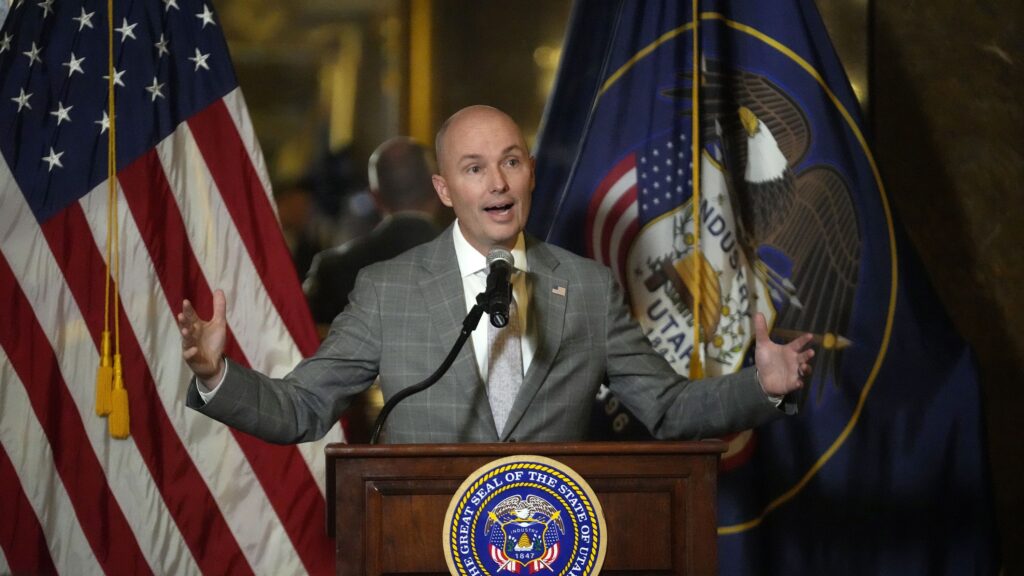SLOAN | Biden’s missed opportunity


When the gifted Scottish historian and analyst Niall Ferguson speaks on world affairs, it behooves even those in the back of the class to sit up and pay attention. In a podcast he recorded earlier this week with Wall Stree Journal Editor-at-Large Gerard Baker, Ferguson said many things in his potent and erudite analysis of the Ukrainian conflict that bear listening to, but among the most salient was his observation that, however noble and appropriate the West’s remarkably unified reaction to the Russian invasion may be, it is all more than likely too late.
Despite the obvious Russian miscalculations and setbacks (it is miraculous, for instance, that the Russians failed to attain air superiority within the first day or two of the war) – to say nothing of the inspirational heroism and steadfastness of the Ukrainian people and their military – there is little doubt that Russia will eventually win, albeit ugly. The Russian advantage in air and armor is simply too overwhelming, and the West simply cannot do enough at this point to prevent a Ukrainian defeat. Ferguson’s point is that the West’s failure – America’s failure – was the failure to deter the invasion in the first place.
President Biden would have done well to acknowledge that in his first official State Of The Union Address, though one supposes that such honesty is politically impossible these days. Biden started the speech well, appropriately and eloquently offering America’s support and sympathy for the Ukraine, and just as appropriately condemning Vladimir Putin for his crimes. It was pleasing to see that part of the speech receive, deservedly, a bipartisan ovation.
It went lamentably flat from there. The address missed many marks; Biden could have used it as a chance to refocus his Presidency on what matters – as an opportunity to take a step back from the beating he has been experiencing on virtually every front for the past year, regroup, and come back with an announcement that his administration was going to realign to meet the challenges presenting the country – foreign threats from China and now Russia, inflation, diminished energy security and others. Instead, the President, at best, skirted these issues, at worst offered proposals that would exacerbate them.
On foreign policy and national defense (because the President and his administration can no longer pretend the two are not inextricably linked) Biden could have taken the lead of Olaf Scholz, the new center-left Chancellor of Germany, for whom Russia’s aggression snatched him from the wilderness of utopian idealism and into sobriety of defense realism and energy policy realism. Biden offered none of that sort of clear-eyed verisimilitude. There was, for instance, no defining of a national security strategy, much less one that prioritizes defense spending on a scale necessary to meet the multi-pronged threats that America and the West are now forced to recognize.
Neither was there any retreat from the energy fantasies that predominated his inaugural year in office. Germany’s Scholz realized, perhaps belatedly, that putting ideological considerations in the locomotive of energy policymaking had shackled his country to one which possesses no regard for international norms and order. Biden still refuses to uncouple himself from the energy- and climate-utopians and do what is most needed to counter Putin’s economic influence in the long term, after the contusions of sanctions have healed, which is to loosen the fetters placed on American domestic energy production and permit the establishment of LNG export terminals and attendant pipelines to ensure energy security for the United States and Europe alike.
In terms of inflation, the President paid the requisite lip service to the problem, while managing to fail to acknowledge the role trillions of dollars in new government social spending played in creating that inflation. He then offered trillions of dollars more in government spending as a “plan to fight inflation,” lest anyone accuse him of having lost the powers of legerdemain.
This is a pivotal moment in world history. As Ferguson pointed out it is even more perilous that what Jimmy Carter faced in 1979 – the dual blow of the Soviet invasion of Afghanistan and the Iran hostage crisis. In addition to a freshly aggressive Russia, we may well see an invasion of Taiwan in the next year or so by China, which is watching both events in Ukraine, and the American response, very closely. On top of that, the administration is committed to rushing headlong into a new nuclear deal with Iran, which is sure to destabilize a suddenly relatively quiet Middle East.
This is a moment that called for an address by an American President that was up to it, but was met by one which was, perhaps tragically, far from it.
Kelly Sloan is a political and public affairs consultant and a recovering journalist based in Denver.












